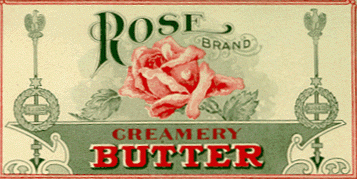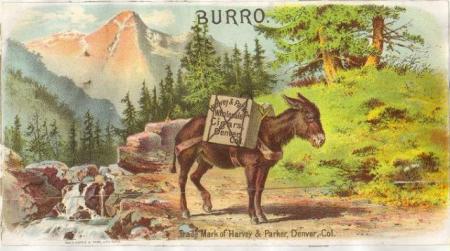Incorporation Records
About these Records
The Colorado State Archives has many records which document the legal history of businesses, irrigation ditches, road companies, fraternal organizations, churches, and other non-profit associations. Businesses in Colorado's earliest territorial existence filed their incorporation papers in the county (normally at the County Clerk and Recorder's office) where their principal place of business was located. In these early years, a corporation could also be established by law through the Territorial Legislature. These incorporations were recorded in the Private Acts section of the Colorado Session Laws. From 1861, the Secretary of the Territory (after statehood, the Secretary of State) was responsible for recording incorporations and subsequent legal instruments regarding the status of corporations. Records can thus be found in the Secretary of State's Incorporation Books and in the Legislative Session Laws.
How to Find Information
Visit the Archives Search, which has an incorporation record index that spans 1861-1914. For records after 1975, contact the Colorado Secretary of State.
Types of Incorporation Records Found at the Archives
Indexes (1861-1975) - Since 1914 the Secretary of State's office periodically compiled indexes of their corporate legal filings. Besides referencing the original documents, these indexes provide valuable information concerning the legal history of businesses and incorporated organizations. The State Archives also has Ditch and Water (1862-1902); Mining and Milling (1863-1902); and Road Company indexes (1864-1899).
Recordings (1861-1957) - Legal actions regarding the status of corporations were recorded in volumes filed at the Secretary of State's office. The State Archives has custody of those volumes that span 1862-1957. The incorporation books contain chronologically arranged records, which may include the Articles of Incorporation; amendments to the Articles; name changes; Dissolution documents; and other legal instruments.
Filings (1861-1974) - The filings are compilations of the legal instruments that are recorded in the volumes. They are organized alphabetically by company name. The filings may contain the documents that are also on file in the Recordings including the Articles of Incorporation; Dissolution documents; and other legal instruments.
Annual/Biennial Financial Reports (1902-1975) - Businesses voluntarily filed a financial statement with the Secretary of State's office before 1912. Thereafter, annual or biennial reports were mandatory. If a company failed to file a report for two consecutive years, it was usually declared defunct and inoperative (D&I). Information found in the annual statements include the names and addresses of the officers and directors; whether or not the business was still engaged in active operation; and various statistics concerning its financial status.
Trademark Recordings (1877-1963) - The Trademark Recordings include a sample of the company's legal trademark; the date it was filed and by whom; and what the company produced in the way of merchandise or services under that trademark. An alphabetic index to these books exists on microfilm.
During the Territorial Period of Colorado's existence, 1861 to 1876, the Colorado Legislature encouraged capitol investment for the development of the region's natural resources. While frontier Coloradans desired to be independent entrepreneurs, there was also a necessary dependence on outside investors in order to make the territory flourish. The large number of investors in the territory resulted in a profusion of corporations being formed during the early stages of Colorado's development.
The three largest industrial sectors in Colorado at the time; metal mining, transportation/communications, and water/irrigation, were often given special privileges to spur industrial development. Furthermore, these corporations existed in a territory that had vague incorporation laws, weak enforcement powers, and a pro-industry legislature. This receptive corporate environment made "Colorado in proportion to its population...more largely dominated by corporation influences than any other state."
The first general incorporation law, passed on August 15, 1862 by the Second Session of the Territorial Assembly, required only that a company seeking a charter inform the state of its name, its capitol stock, the type of business to be conducted, and the route it took if it was a transportation business. This was amended two years later to include the company's name and purpose, the term of its existence (20 yr.), the names and number of its trustees, the number of shares of its stock, and the location (county) of its business operations.
Articles of Incorporation were filed through the Secretary of State's Office and through the Territorial Legislature. Records can thus be found in the Secretary of State's Incorporation Books and in the Legislative Session Laws. If a corporation is filed with the Secretary of State's Office, the location entry will show the year of the business' incorporation, the book letter (A through F), and the page number. If the corporation's charter was filed in the Legislative Session Laws then the location is listed by the year of incorporation and page number (pp) in that year's Session Laws.
All quotes came from Barnett, Paul Sibley. Colorado Domestic Business Corporations, 1859-1900. Urbana: University of Illinois, Unpublished Ph.D Thesis, 1966.
County Incorporation Records
Colorado counties are incorporated by statute. These are acts of the General Assembly and recorded in the Session Laws. All Session Laws from 1861-present are digitized and freely available through the University of Colorado Boulder's Law Library at the link below.
https://lawcollections.colorado.edu/
Town Incorporation Records
The Colorado State Archives has custody of the incorporation records for most cities and towns covering the period 1871 through 1977. The more recent municipal incorporation records are housed at the Office of the Secretary of State. While these records are inherently important to the historical foundation of our State, they also can provide the researcher with genealogical and legal documentation. Municipal incorporation records may have plat and city plan maps as well as charters. Occasionally codes and ordinances, court transcripts, and annexation documentation exist. Furthermore, these records may include voting records and poll books, which provide the names of those living in the prospective city and its founding citizens.
Trademark Records
A great way to study Colorado’s history or research ancestors is through trademark records. The Colorado State Archives has trademark records listed in the Archives Search. The trademark records have the name of the person filing the trademark, the company as well as the product names.
Types of Trademark Records Found at the Archives
Trademark Recordings (1877 - 1963) - Applications for Trademarks, Registrations, and Renewals. From 1877 to 1923 the record contains an actual sample of the trademark, whereas from 1923 to 1963 the record contains a photostatic copy. The Trademark Recordings include a sample of the company's legal trademark; the date it was filed and by whom; and what the company produced in the way of merchandise or services under that trademark.
Trademark Filings (1900 - 1975) - Applications for Trademarks, Registrations, and Renewals which are organized alphabetically.
Marks of Ownership (1921 - 1951) - Registration of Ownership Marks on bottles and cans.
Correspondence (1950 - 1956) - Incoming and Outgoing Correspondence from the Secretary of State's Office. The correspondence is organized in both an alphabetic and chronological format.
For records after 1975, please contact the Colorado Secretary of State's Office, Commercial Recordings.
To Request a Record
To search our records, please see Archives Search.
To request a record from the Archives, please submit a formal request.
- See also our associated fees

